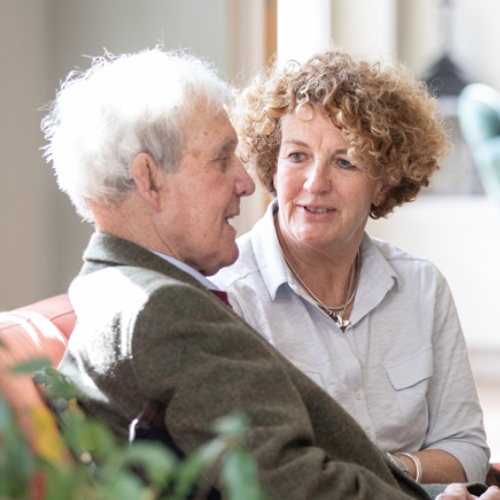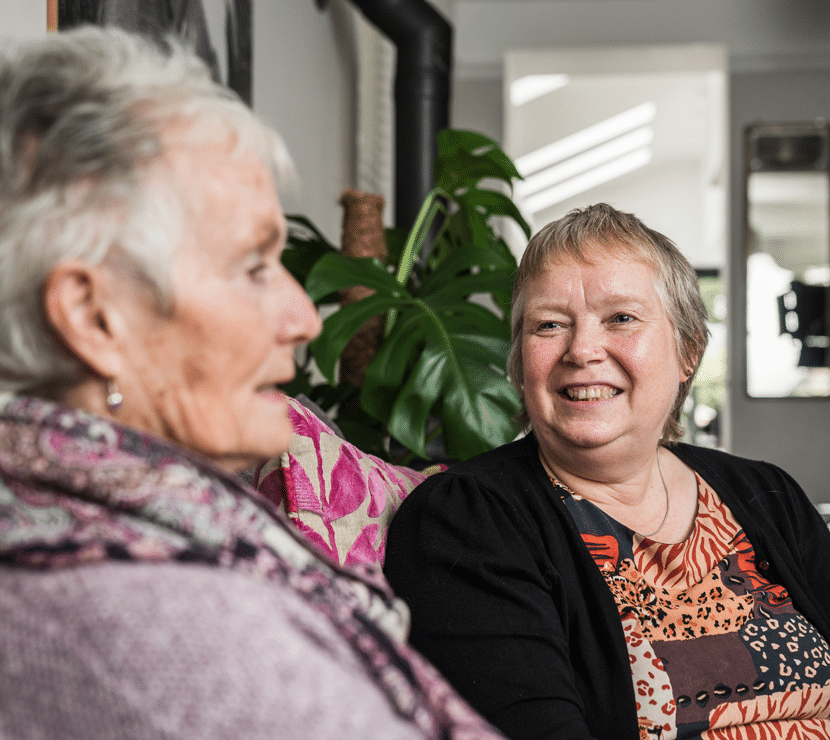At Oxford Aunts, we understand that cost is a significant consideration when it comes to cancer care in the UK. Families facing a cancer diagnosis often grapple with the financial implications of providing the best possible care for their loved ones. That’s why our experienced team is here to guide you through the costs of receiving cancer care in the comfort of your home. You do not have to navigate this journey alone.
Once you’ve decided that home-based cancer care is right for you and your family member, our compassionate and knowledgeable care advisors are ready to assist you. We recognise that planning for the costs associated with cancer care can be a daunting task.
This comprehensive guide provides advice on cancer care costs in the UK. We’re committed to empowering you to make informed decisions about the best care options for you or your loved one.
How much does cancer care cost?
Several factors influence the cost of cancer care in the UK:
- Type of care provider: The choice of care provider can significantly affect the cost of cancer care. Different providers may offer varying levels of expertise, services, and pricing structures.
- The type of care: Live-in care is a comprehensive, round-the-clock package with higher costs than visiting or hourly care.
- Health of the person receiving care: The health condition and specific care requirements of the person with cancer are crucial in determining the cost of care. The complexity of care needed can impact the overall expenses.
One of our local care managers will schedule a meeting with you and your family to determine the cost of your cancer care. During this comprehensive assessment, we will not only evaluate your specific care needs but also consider your preferences and wishes regarding your desired quality of life.
Following this assessment, we will provide you with the exact cost of our personalised care package. Our pricing is transparent and quoted as a weekly inclusive price based on the assessed care requirements. We take pride in our commitment to transparency, ensuring that there are no hidden fees or unexpected extras.
Additionally, as a fully managed service provider, you can trust that you won’t be burdened with agency fees or retainers. We focus on providing you with the highest quality cancer care at home while offering clear and straightforward pricing.
What does cancer care include?
- Round-the-clock support for all aspects of your physical, medical and emotional needs.
- Stay in your much-loved home to receive the care you need, surrounded by your family, pets and treasured items.
- Your care will be delivered in line with your personalised care plan, considering your preferences, wishes and dislikes.
- Nutritional support through meal planning and cooking.
- Maintaining your independence and freedom to live the life you choose.
- A carer can take the responsibility of care away from family members, meaning they can focus on spending quality time together.
- Receiving care at home lowers the risk of infection and illness when compared to a hospital or residential care setting.
- Friendly companionship and emotional support for you and your family, should you need it.
Is there funding available for cancer care?
Funding may be available to help alleviate some or all of the financial burden of receiving cancer care. In the UK, people receiving cancer care at home may be eligible for funding through the NHS or their local authority:
NHS continuing healthcare funding
You may qualify for NHS Continuing Healthcare funding if you have identified healthcare needs. This is funding available from your Clinical Commissioning Group (CCG).
If you have been diagnosed with a life-limiting condition, have a disability or a long-term illness, the CCG will assess your health needs. If they consider your need to be a ‘primary health need’ that requires clinical support or interventions, then you will be entitled to some healthcare funding.
The process to secure NHS healthcare funding can be lengthy, and the qualification criteria are rigorous, with several steps involved. Contact your GP or local social worker to ask for a Continuing Care Assessment. They will undertake an initial ‘screening’ in hospital or at home to better understand what funding you may be eligible for.
Social care funding
You may also be entitled to some support from your local authority. Funding long-term care through your local authority is called social care funding. It is provided to people who require support to complete daily tasks and activities. Social care funding focuses on enabling a person to continue to have practical support, independence and socialisation.
Social care funding is means-tested. This is the method your local authority will use to understand your financial circumstances and, therefore, your eligibility to claim funding. They consider your capital assets, for example, savings and property (other than your primary home where you or your spouse reside) and any income you regularly receive and then calculate what might be available to you. This funding is only available if your assets are worth less than £23,500 in England and £26,500 in Scotland.
You may also be eligible for other forms of Local Authority support to help cover the costs of cancer care at home.
Arrange cancer care at home
At Oxford Aunts, we have helped many people with cancer to live a peaceful and fulfilled life with independence through bespoke cancer care at home. We understand how upsetting a diagnosis of cancer is for all the family. Our trained and dedicated carers will support your physical and emotional needs with a sensitive and compassionate approach, no matter where you are on your journey.
With our fully managed live-in care service, families have reassurance at a time when they need it most. Our cancer care at home is trusted by families across Oxfordshire and beyond to really make a difference in the life of someone with cancer.
Contact us and our expert care advisors would be happy to help you understand the options available to you.





